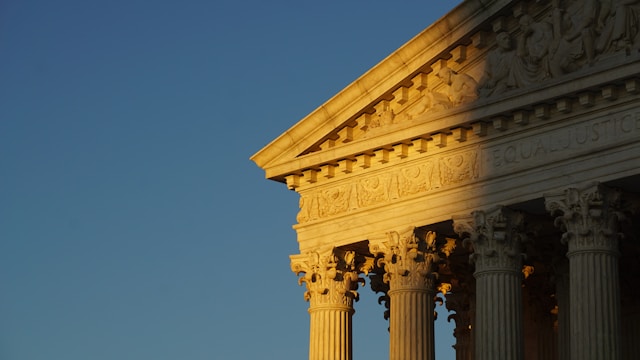 POLICY
POLICY
 POLICY
POLICY
 POLICY
POLICY
Supreme Court justices today listened to oral arguments for four hours regarding laws in Florida and Texas that seek to regulate how social media companies such as Meta Platforms Inc. and X Corp. run their platforms, a case that could fundamentally alter the future of digital free speech.
The Republican-backed laws passed in Florida and Texas after the 2021 Capitol riot would give less power to large tech firms to moderate what appears on their platforms. The laws were enacted because some conservatives believed supposedly left-leaning Silicon Valley companies were suppressing conservative views. A notable example cited was former President Donald Trump being suspended from various social media platforms.
The two laws are not identical. In Texas, the law states that people’s content should not be removed from a platform solely based on their viewpoints, while in Florida, the law prevents people from being deplatformed based on their views.
A coalition of tech companies represented by NetChoice and the Computer and Communications Information Association sued, arguing that companies should have the right under the First Amendment to moderate their platforms to keep them safe and keep advertisers happy. The groups won preliminary injunctions that blocked Texas and Florida from enforcing the laws.
The justices, who embody varying ideological views, struggled over the very nature of social media companies. Are they publishers or a public service? The latter, which includes telephone companies or internet providers, may be subject to more government regulation, just as any public utility is.
“They contend that they possess a broad First Amendment right to censor anything they host on their sites, even when doing so contradicts their own representations to consumers,” argued Henry Whitaker, Florida’s solicitor general. “But the design of the First Amendment is to prevent the suppression of speech, not to enable it.”
Paul Clement, who was arguing on behalf of NetChoice, said social media companies shouldn’t have to explain themselves every time they refuse to publish something, just like a newspaper wouldn’t do that for refusing to publish a wedding announcement. He added that these laws would enable users to post pro-suicide and antisemitic content. Censorship, he said, is not the same as “editorial judgment.”
The justices agreed, for the most part, that social media is now the public square, and there are dangers in limiting who can be heard in the public square. Still, not allowing companies to monitor what appears on their platforms also carries risk. They also argued that if the laws stood, how would it affect companies such as Uber Technologies Inc. and Etsy Inc., not to mention email and messaging services?
“Separating the wheat from the chaff here is pretty difficult,” said conservative Justice Neil Gorsuch.
The court’s ruling is expected sometime in June. Next month, it will hear another major social media case that challenges the Biden administration putting pressure on social media companies to block certain content, including information about COVID-19 and the controversial Hunter Biden laptop.
THANK YOU